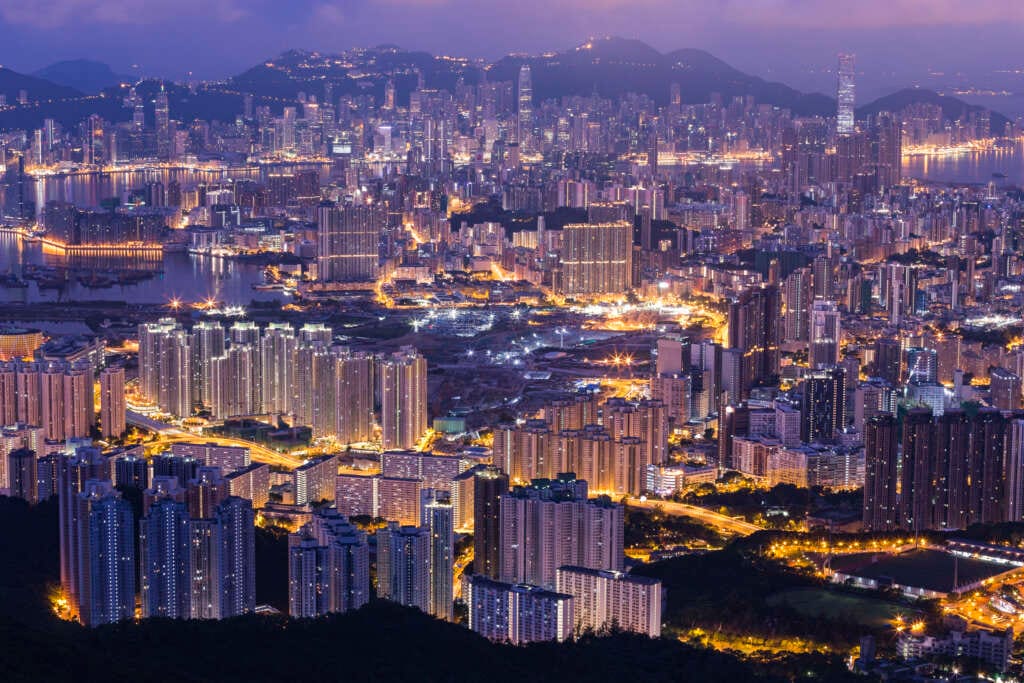

Climate change is real, and the climate is a ticking timebomb. In 2021, Net Zero cities have become the focus, calling for an integrated approach from individuals and governments to make our cities more sustainable.
To address this challenge head-on, many initiatives strive to make our cities climate neutral or carbon neutral by the end of the decade. The EU Commission has undertaken a mission to support and promote 100 European cities in their systemic transformation towards climate-neutrality by 2030. Many cities within The Carbon Neutral Cities Alliance (CNCA) – from Adelaide to Amsterdam, from Helsinki to Washington DC – aim to achieve carbon neutrality within the next 10-20 years.
Why the focus on cities, and not industry? We must tackle both, but the main difference is that decarbonizing metropolises can deliver impact at scale. Cities only cover about 3% of the Earth’s land, but they produce around 72% of its total greenhouse gas emissions. On top of that, cities are growing fast and will continue to be major centres of emissions despite the effects of COVID-19. If the fight against climate change can be described as a war, our biggest battles will have to be fought in cities.
The way I see it is that both the climate emergency and the pandemic provide us with opportunities for change – a rebirth. Policymakers and urban dwellers can play a leading role in rethinking urban planning, to build back more sustainability into our cities. Some solutions could include clean electrification, smart digital technology, efficient buildings, and infrastructure, along with a circular economy approach to water, waste, and materials.
Mind over Money
Transforming our cities into bastions of carbon neutrality – whether within 10 or 30 years – will be a challenge. However, technology and innovative solutions for sustainable homes, office buildings, energy, transport, food, water, and material systems already exist – and more are underway due to the fall in sustainable tech prices and more financial support coming from investors.
The real challenge is to alter how we think. For the world to change, people need to change first, and transformation can be painful. As large corporations, we need to make everyone aware that sustainability doesn’t have to impact productivity, success or living standards. Smart, sustainable buildings mean less waste, fewer emissions, and lower energy costs. Then we need to turn barriers into opportunities through the power of modern technologies.
Smart homes can make cities smarter
Responsible for up to 30% of CO2 globally and expected to become the single largest GHG emitters over the next decade, homes must be at the top of the net zero cities agenda. In a post-pandemic world, they’ll be where we spend most of our lives and consume most of our energy. The democratization of domestic energy production allows for fast decarbonization. Solar, for example, makes homes cleaner and more sustainable. We should then also provide homeowners with the capability to sell their excess energy back to the grid or to their local community.
But we need to go further than that. Smart home systems can provide unprecedented insight into energy usage, be it for heating, cooking, charging your car, or entertainment. Such smart sustainable homes provide more personalized comfort as well as efficiency in the form of reduced energy bills. AI-driven sustainable tech will also keep us safe – not just by ensuring we breath clean air and our room temperatures remain comfortable – but by also proactively alerting us to potential electrical faults. Think of the impact if we could stop electrical fires from ravaging our livelihoods.
Digital solutions that work in a smart home can then be scaled up and linked up to other, larger buildings – even to an entire community or city. However, large net-zero ecosystems will only be achieved using world-class modern digital infrastructure, deployment of the IoT and related applications at scale. The same applies for open and interoperable datasets, which are linked and shared across the city ecosystem to break down silos and generate practical insights through big data analytics and AI. This is what all organizations should be clamouring for – partnerships, cross-industry collaboration, and the use of best of breed technologies that could drive synergies though interconnectivity and analytics.
To achieve this collective success, we must keep an open mind and pursue a policy of lifelong learning as an industry. This is crucial as new technologies and innovations emerge. When it comes to saving the planet, our work is never done. The best solution from a few years ago won’t be today’s silver bullet.
For instance, today’s overreliance on passive retrofits – such as building insulation – will outgrow its utility as our cities burgeon with new buildings. Isolated, small-scale thinking will get us nowhere. It can only slow our collective progress towards net zero. Instead, there needs to be consideration for active, digital retrofits of existing homes as well as buildings in general. We need the right digital tools to accurately measure and decisively curb our energy consumption. And we must deploy them at scale.
Saving the world while preserving the economy
We are in the midst of an energy revolution. If you look into human history, you’ll see that the growth of any economy was driven by the availability of affordable energy. The only difference now is that we are talking about an unprecedented level of consumption, and the need for clean energy.
Making our cities carbon neutral is no easy task. It is clear that we need to embrace the right mindset, stay the course and follow an attitude of ‘our work is never done’. Using the latest digital technology will give us insight and power to achieve our common goals, while more sustainable jobs, tech innovation and ESG investment will help drive economic recovery. Whatever route we chose to fight the climate crisis, whatever solutions we implement, we must remember, like all good things, sustainability starts at home.


